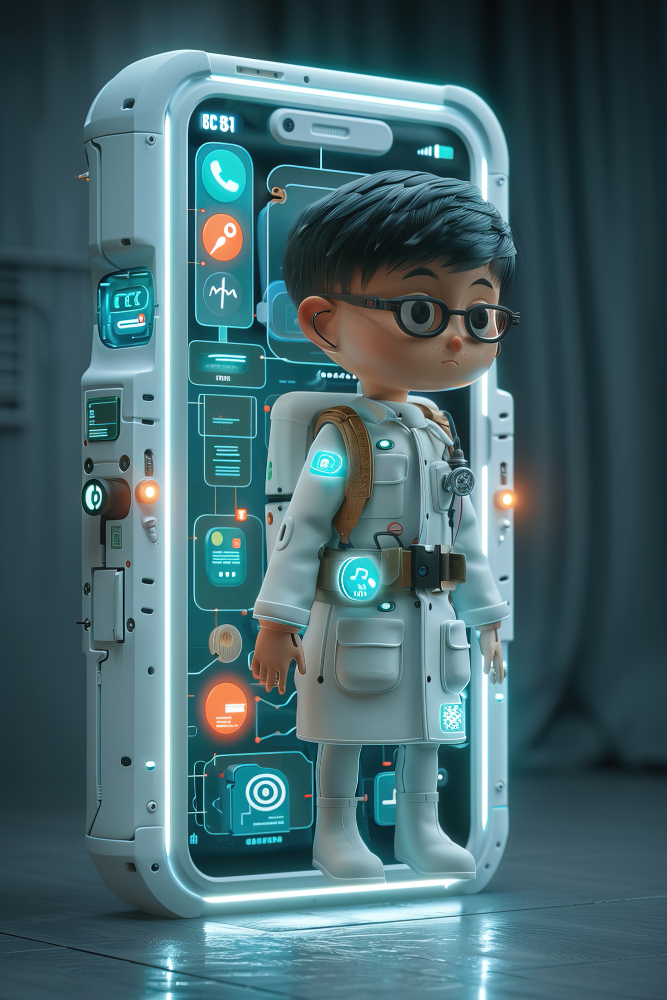Introduction
The rise of mobile technology has transformed every industry, and healthcare is no exception. From telehealth consultations to personal health trackers, healthcare apps have evolved from “nice-to-have” to essential. Today, they improve patient care, streamline operations, and empower people to take charge of their health. With healthcare app development projected to become a $100B industry, this guide explores everything you need to know to develop an impactful, secure, and user-friendly healthcare app.
What is Healthcare App Development?
In its simplest form, healthcare app development involves creating smartphone applications tailored to healthcare needs. These apps vary widely—some are designed for patient engagement and remote monitoring, while others streamline back-end operations like billing, coding, and practice management.
The development process integrates modern tech trends, like AI, IoT, and telemedicine, which elevate user experience and enhance healthcare delivery. Whether for patient use or healthcare professionals, an effective healthcare app should always aim to be intuitive, secure, and compliant with industry standards.
Essential Steps in Healthcare App Development
Creating a healthcare app is more than coding; it’s about understanding the unique needs of the healthcare industry. Here’s a step-by-step look:
1. Define Purpose and Audience
First, identify the app’s primary purpose and who will use it—patients, doctors, or administrative staff. Defining these elements influences the app’s design, features, and compliance requirements.
2. Plan for Regulatory Compliance
Healthcare apps handle sensitive information, making security and compliance paramount. Plan for HIPAA (US), GDPR (Europe), or other applicable regulations early in the development process to ensure data privacy.
3. Select the Right Technology Stack
The choice of tech stack—languages, frameworks, and libraries—impacts performance, security, and scalability. For cross-platform apps, consider React Native, while native apps benefit from Swift (iOS) and Kotlin (Android).
4. Emphasize User Experience (UX)
Healthcare apps cater to diverse users, including those with limited tech experience. A streamlined, accessible design is essential. Use large buttons, clear icons, and simple navigation to ensure ease of use.
5. Rigorous Testing and Deployment
Healthcare apps require extensive testing to guarantee functionality, security, and reliability. Real-world testing environments help identify potential issues before launch, ensuring a seamless user experience.
Must-Have Features for a Healthcare App
A healthcare app is only as good as its features. These are some of the must-haves:
- User Profiles: Centralized profiles allow users to access health records, appointment history, and personalized content.
- Appointment Scheduling: Users can schedule and reschedule appointments, reducing administrative workload and patient no-shows.
- Telemedicine Capabilities: Virtual consultations enable patients to access healthcare without leaving their homes—a game-changer in remote areas.
- Secure Messaging: Direct communication between patients and healthcare providers improves engagement and allows for timely support.
- Health Data Integration: Syncing with EHR systems or wearable devices ensures providers have access to real-time patient data, enhancing care delivery.
- Notifications and Reminders: Medication and appointment reminders help patients stay on top of their health needs.
- Payment Gateway: Simplifies billing and payments, making it convenient for patients and efficient for providers.
Challenges in Healthcare App Development
The journey isn’t always smooth. Healthcare app development faces unique hurdles:
- Stringent Compliance Requirements: Navigating regulations like HIPAA or GDPR can be complex, but they are essential to protect patient data.
- Integration with Legacy Systems: Many healthcare providers rely on older EHR systems, so ensuring compatibility can be challenging.
- High User Expectations: Users expect seamless functionality, especially for apps that affect their health. Any downtime or bugs can lead to frustration.
- Ensuring Data Security: A breach in healthcare data can have serious implications. Implement encryption, secure access, and continuous monitoring.
The Future of Healthcare App Development
With advances in AI, IoT, and predictive analytics, the future of healthcare app development is filled with promise. Apps are moving beyond merely serving as tools—they are becoming integral components in patient care. Features like predictive diagnostics, real-time health monitoring, and even virtual health assistants will transform how patients and providers interact with healthcare technology.
The focus is shifting towards preventive care and personalized treatment plans, aiming to improve outcomes while reducing costs. As technology continues to evolve, healthcare apps will likely become more accessible, intelligent, and user centric.
Conclusion
Healthcare app development is a dynamic and rewarding field that’s here to stay. As the industry continues to adopt mobile solutions, healthcare apps will remain essential for connecting patients and providers, enhancing care quality, and improving overall efficiency.
For anyone looking to develop a healthcare app, the key lies in understanding user needs, focusing on compliance and security, and staying updated with tech trends. Done right, healthcare apps don’t just provide convenience—they build trust, improve outcomes, and revolutionize healthcare delivery for everyone involved.





Comments